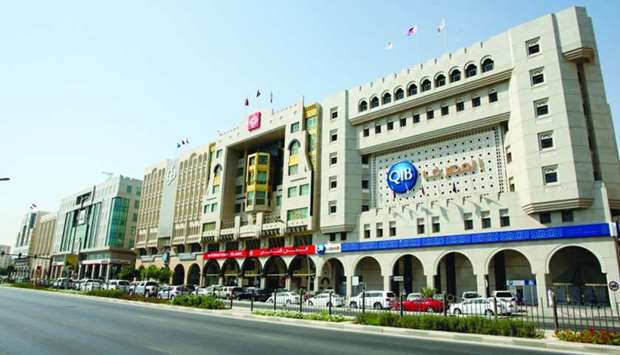Qatar has already adopted and implemented the Basel III framework ahead of some of its GCC peers and can adopt the revised guidelines quickly, KPMG has said in a report.
The country is committed to adopting Basel IV (Revised Basel III) guidelines and QCB has already initiated an impact study/consultative guidelines issuance on the subject, KPMG said in its ‘Qatar banking perspectives’ released in Doha recently.
Qatari banks are well capitalised and can leverage the existing system implementation to adopt the revised Basel III reforms quickly, it said.
The revised norms will result in banks facing a shift in the relative attractiveness of different types of exposures, which will also impact the attractiveness of adopting an internal model based approach to credit or market risk, KPMG said.
In December 2017, the Basel Committee on Banking Supervision published a revised set of minimum standards for the capital treatment of credit risk, operational risk and credit valuation adjustment risk and for a new output floor to limit the extent to which banks will be able to use internal models for credit and market risk to drive down capital requirements.
The revised capital standards are due to be implemented in January 2022, and the output floor to be phased in from 2022 to 2027. The implementation of the revised framework for market risk (mostly finalised by the Basel Committee in January 2016) has been pushed back to January 2022.
“In the constant drive for growth, banks would do well to swiftly adapt to a shifting regulatory and consumer landscape. Banks need not, however, be overly cautious of venturing into uncharted territory. Rather, they can pioneer practices and products that cater to gaps in the market or improve operational efficiency and competitive positioning,” said Omar Mahmood, KPMG head of Financial Services in the Middle East & South Asia and a partner in Qatar.
Technological innovation and a flourishing demand for non-conventional financial institutions can disrupt the industry, while risk functions must contend with challenges such as the adoption of IFRS 9 and the upcoming replacement of the London Interbank Offered Rate (LIBOR), he said.
Over the past year, the Qatar Central Bank has issued a range of directives that clearly signal Qatar’s intent to align with global best practice in terms of prudent market regulation, covering areas such as IFRS 9 and Basel III, Mahmood noted.
They have also addressed topical subjects affecting the banking industry today, including the Financial Action Task Force (FATF) evaluation of Qatar, which is expected to begin next year, and will trigger an independent review of anti-money laundering (AML) and sanctions compliance rules.
Banks continue to encourage a healthy corporate culture, and are now considering practices that are in line with the sustainability agenda, while strides in digital innovation can be exploited to their full potential as traditional banking methods are transformed by the digital age, Mahmood added.
Qatari banks are well capitalised and can leverage the existing system implementation to adopt the revised Basel III reforms quickly, it said.
The revised norms will result in banks facing a shift in the relative attractiveness of different types of exposures, which will also impact the attractiveness of adopting an internal model based approach to credit or market risk, KPMG said.
In December 2017, the Basel Committee on Banking Supervision published a revised set of minimum standards for the capital treatment of credit risk, operational risk and credit valuation adjustment risk and for a new output floor to limit the extent to which banks will be able to use internal models for credit and market risk to drive down capital requirements.
The revised capital standards are due to be implemented in January 2022, and the output floor to be phased in from 2022 to 2027. The implementation of the revised framework for market risk (mostly finalised by the Basel Committee in January 2016) has been pushed back to January 2022.
“In the constant drive for growth, banks would do well to swiftly adapt to a shifting regulatory and consumer landscape. Banks need not, however, be overly cautious of venturing into uncharted territory. Rather, they can pioneer practices and products that cater to gaps in the market or improve operational efficiency and competitive positioning,” said Omar Mahmood, KPMG head of Financial Services in the Middle East & South Asia and a partner in Qatar.
Technological innovation and a flourishing demand for non-conventional financial institutions can disrupt the industry, while risk functions must contend with challenges such as the adoption of IFRS 9 and the upcoming replacement of the London Interbank Offered Rate (LIBOR), he said.
Over the past year, the Qatar Central Bank has issued a range of directives that clearly signal Qatar’s intent to align with global best practice in terms of prudent market regulation, covering areas such as IFRS 9 and Basel III, Mahmood noted.
They have also addressed topical subjects affecting the banking industry today, including the Financial Action Task Force (FATF) evaluation of Qatar, which is expected to begin next year, and will trigger an independent review of anti-money laundering (AML) and sanctions compliance rules.
Banks continue to encourage a healthy corporate culture, and are now considering practices that are in line with the sustainability agenda, while strides in digital innovation can be exploited to their full potential as traditional banking methods are transformed by the digital age, Mahmood added.


